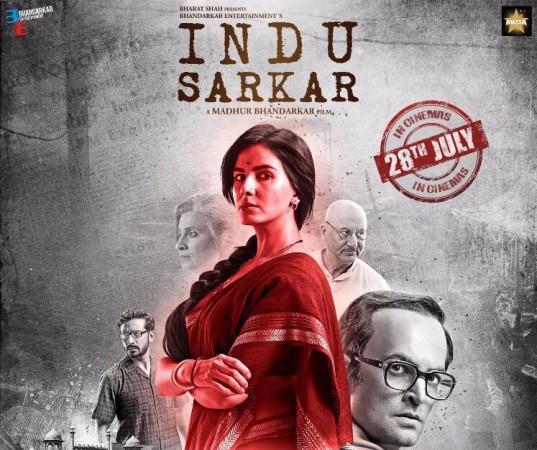
As expected, Madhur Bhandarkar's Indu Sarkar has become a subject of debate long before its release date – July 28, 2017. A Congress leader, known more for his lineage than actual work, has called the film a "fully sponsored" one and lashed out at the "false depictions" made in it.
The filmmaker has stood his ground saying the film was made to educate today's generation about Emergency, the biggest blot in the history of the Indian democracy, which was proclaimed in June 1975 and continued till March 1977.
The BJP, on its part, has also joined the fray as its Delhi unit spokesperson asked the finance ministry to make the film tax-free so that it would serve as an "inspiration as to how our ancestors fought back to restore the democracy in our country".
The censor board chief Pahlaj Nihalani, who is has earned a bad name for running scissors frequently on movies, said Indu Sarkar need not have a no-objection certificate since it doesn't name any person and just shows physical resemblance between the reel characters with real people. A great relief for the film's makers, isn't it? One just has to pick the right subjects.
This current controversy over Indu Sarkar has two sides to it. And both disapprove of how things are being done in India.
Congress's defence stands no ground; Emergency is a blot on our democracy
First, about the Congress. No matter what the leader says that the film depicts things on a false note, there is no denying that the Emergency is the darkest phase in the history of Indian democracy. The civilian coup was engineered by the then prime minister Indira Gandhi and her lieutenant, younger son Sanjay Gandhi, and they were supported by the sycophants that were at play then.
It was the megalomania of Indira Gandhi, coupled with her power-monger son, which had made Indians suffer under the state's bulldozers for nearly two years. The India of today knows little about those days and Bhandarkar has done it rightly by bringing alive the story which marked a change in the course of India's political history.
The Emergency had seen the Congress losing power at the Centre for the first time in 1977 after ruling continuously for three decades and the Indian politics tasted democratisation and decentralisation in the true sense for the first time, out of the shadow of the Congress's political elite. It is true that Indira had returned to power three years later and the Congress had ruled for almost another decade thereafter but the undercurrents of Indian politics had started flowing strongly around this period. For the young students of Indian politics, it is a major subject to know about.
The Congress, which had raised objections to films like Aandhi, Kissa Kursi Ka and October 31, has done the same with Indu Sarkar as well but given its state of affairs in current times, one doubts whether it would succeed in shielding its biggest political failure since Independence which was not abiding by the principles of democracy.
But freedom of expression in this country comes with a rider
But there is another side to the story as well and it is about the freedom of expression, as it is being used in India. There should be little hesitation to say that the makers of Indu Sarkar did their critical bit when the situation is conducive, after over four decades. There will be little objection apart from the Congress's toothless stir even if one decides to make not one but a series of films criticising Emergency or the anti-Sikh riots of 1984.
But can the same makers do a critical film on the communal violence of Gujarat in 2002 today? The answer is perhaps not very difficult to assume. So essentially, freedom of expression in India comes with a rider. Though in the past, we had ace filmmaker like Satyajit Ray who had refused to do films propagating for Indira Gandhi during the 1970s. Legendary Kishore Kumar, too, had faced the government's ire by criticising the Emergency but he had not ignored his moral responsibility as an artiste even at the peak of his career. He was even banned but he did not relent. How many of them are seen today? It is much more safe rather to slam the establishment which was calling the shots in 1975, a completely different era.
Can our filmmakers and actors do something criticising Modi sarkar right NOW?
So, the question that comes to mind is: Just like Bhandarkar feels it is urgent to educate the youngsters about yesterday, isn't it also a responsibility for people like him to warn them about the future, by making films on farmers' suicide, cow vigilantism or what happened to the much talked-about Nagaland accord of August 2015? Not many know about the "untold story" of that accord either, just like the plot in Indu Sarkar. Or will we witness a film on these issues in the year 2070?
It is always preferred that creative minds come up with timely reactions to any event which affects our society and surroundings. If it's too late, history becomes entertainment. For example, Indu Sarkar.















